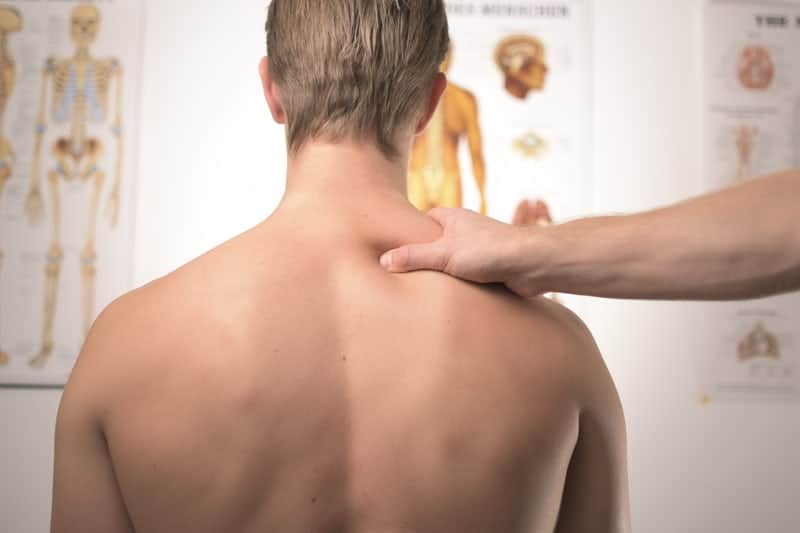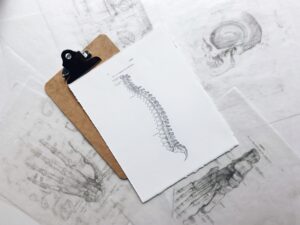Your shoulder and neck contain veins, bones, nerves, arteries, ligaments, and muscles that if damaged, causing pain emanating from these regions. Some of the causes of neck or shoulder pain include injury to soft tissues from whiplash, degenerative arthritis, cervical spondylitis, bursitis, heart attack, trauma, old age, and body posture. Recent data indicates a spike in several young patients reporting shoulder and neck pain due to spending time on computers. Self-medication with painkillers is the most common intervention taken by patients, but there are other means of relieving shoulder or neck pain.
Medication.
If you are experiencing shoulder or neck pain, you will probably take painkillers as the first intervention. Physicians recommend patients with pain in the cervical region to take non-steroidal anti-inflammatory drugs (NSAIDs) such as aspirin. Other pain relievers include ibuprofen and acetaminophen and are available to patients without the need for a prescription. In the case of pain persistence, your physician may recommend pain relievers that are stronger than NSAIDs. Additionally, patients on NSAIDs alleviate inflammatory responses apart from relieving pain. Medications such as ibuprofen, among other NSAIDs, can reduce swellings stemming from fractures, muscle spasms, or dislocation in the shoulder or neck regions. Your physician may direct you to take tricyclic antidepressants (TCAs) and muscle relaxants. TCAs act to mediate pain relief and muscle relaxation, where NSAIDs are ineffective.
Surgery and corticosteroids.
Your doctor might consider the application of corticosteroids if pain killers are ineffective. Unlike mild pain relievers like acetaminophen and ibuprofen, corticosteroids have a longer duration of action up to months. Therefore, corticosteroids are the best mechanism of pain management if your shoulder or neck pain is excruciating. Corticosteroids alleviate inflammatory processes and eventually reduce pain experienced in the shoulder or neck regions. Your doctor will inject the corticosteroids near the muscles, facet joints of the cervical bone, or the base of nerve roots in the shoulder or neck region. Moreover, your physician may use local anesthetic medications like lidocaine to alleviate shoulder or neck pain. Your physician may recommend a surgical procedure on rare occasions such as spinal cord or nerve root compression.
Heat therapy.
According to physicians, you should not avoid heat therapies during the first week after a shoulder or neck injury. The application of heat will potentiate swelling in the region, leading to worsening your pain. However, you can use a plastic bag with ice to relieve pain in an injured part for approximately fifteen minutes. It would help if you avoided direct ice placing since it damages skin tissues.
Rest and exercises.
You may employ workout routines that relax the muscles of the shoulder, neck, and back. Identify a physiotherapist that would guide you into routines that avoid further injury and strain of the shoulder or neck muscles. Furthermore, experts recommend mixing stretching workouts with yoga for the realization of long-lasting and better outcomes. However, before starting on exercises, you should rest for about two days to promote a quick recovery.
Traction as a shoulder exercise to relieve pain.
Traction is stretching, and exercise routine involves the use of weight and pulleys. However, when carrying out traction, you should be under the supervision of a chiropractor or physiotherapist. Furthermore, it reduces pain emanating from nerve roots.
Immobilization.
In the event of an injury that requires immobilization, you should follow your physician’s instructions. You should follow advice relating to when it’s appropriate to discontinue the use of a particular device. You should elevate the injured area if possible and engage in the most diminutive movement to avoid prolonged pain symptoms. Elevation of the painful region, especially if wounded, should not be below your heart to reduce pain and swelling.
Chiropractic practice.
Chiropractors provide care and relief to diverse inflamed regions in vertebrae. Chiropractors make neck adjustments to loosen joints in the cervical area, relieving off the pain. Through spinal manipulation, chiropractors align shoulder and neck muscles with diminishing pain originating for pinched nerves and muscle spasms.
Physical therapy and massages.
You can get your family member, spouse, or masseuse to massage your sore shoulder or neck muscles. You could take a tennis ball, place it inside a stocking and lean on a wall with the ball on the afflicted area. Apply pressure directly to the region afflicted with pain, thereby massaging yourself. Conversely, you could change your sleeping and sitting behaviors since they lead to neck pains. It would help if you changed the sitting position more often while sitting straight. It’s advisable to take regular breaks to avoid muscle straining by leaning forward or backward. It would be best if you adopted a sleeping posture of lying on your sides rather than the stomach. If you are suffering from shoulder and neck pain, worry no more. We can help, call now 205-637-1363 to alleviate your pain.








